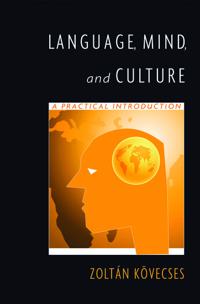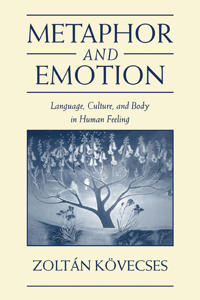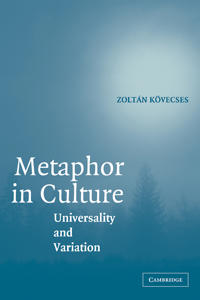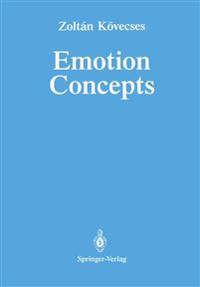Language, Mind, and Culture (Häftad)
avZoltan Kovecses
ISBN: 9780195187205 - UTGIVEN: 200607This book shows that given the new findings of cognitive linguistics, it is possible to offer a unified account of not only linguistic meaning but also that of meaning in a wide variety of social and cultural phenomena. It is suggested that cognitive linguistics is a much more comprehensive enterpri[...]
Metaphor and Emotion (Pocket)
avZoltan Kovecses
ISBN: 9780521541466 - UTGIVEN: 2003-09This book challenges the simplistic division between the body and culture by showing how human emotions are to a large extent ?constructed? from individuals? embodied experiences in different cultural settings. Kovecses illustrates through detailed cross-linguistic analyses how many emotion concepts[...]
Metaphor in Culture (Pocket)
avZoltan Kovecses
ISBN: 9780521696128 - UTGIVEN: 2006-12To what extent and in what ways is metaphorical thought relevant to an understanding of culture and society? More specifically: can the cognitive linguistic view of metaphor simultaneously explain both universality and diversity in metaphorical thought? Cognitive linguists have done important work o[...]
Emotion Concepts (Häftad)
avZoltan Kovecses
ISBN: 9781461279624 - UTGIVEN: 2011-09This chapter briefly describes the general goals of the book, introduces the most fundamental features of the methodology that is employed to achieve these goals, and gives an outline of the structure of the book. A more detailed account of the goals and methodology is presented in chapters 2 and 3,[...]






